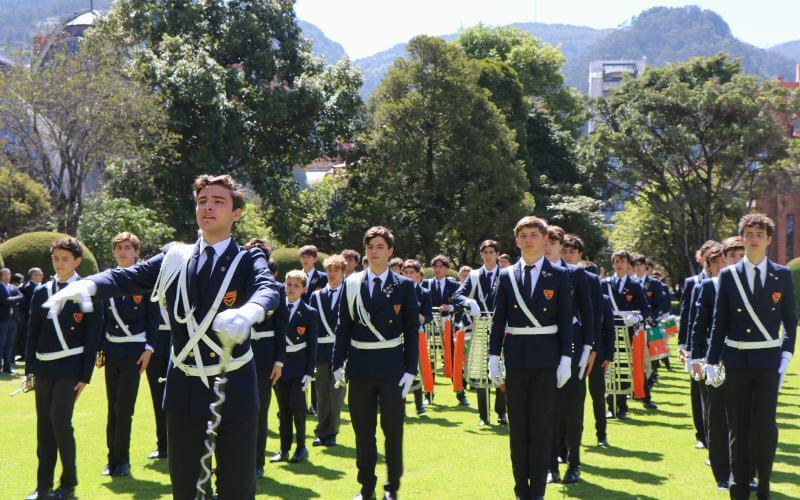The guiding statements express the pedagogical and humanistic philosophy, curriculum, and evaluation approach of both teachers and students at Gimnasio Moderno. They serve as the compass that guides the various actions of the stakeholders involved in this school. This pedagogical and humanistic philosophy was designed by the school’s founder, Agustín Nieto Caballero, over a century ago and remains relevant through the updating of these principles to the new educational environment we live in.
In this school with over a hundred years of existence and great recognition in Colombia, many of the country’s political, economic, cultural, and sports leaders have been educated, leaving a mark. Above all, Gimnasio Moderno has become a reference point for other educational institutions that observe it closely. The school symbolizes a culture, a way of being a child and a young person, of being a teacher in a particular historical context, of uniting a community where alumni and parents play a leading role. It is a beautiful place with trees and English-style buildings, located in the north of Bogota, considered a cultural heritage site by the Colombian State.
These guiding statements have been organized into 13 sections to provide readers with an overview of the major educational principles of Gimnasio Moderno:
1. About Us
2. Our Mission
3. Our Vision
4. Our Values
5. Our Model of Society
6. Our Principles
7. Our Alumni Profile
8. Our Awards
9. Our Education Model
10. Our Vision of Teaching and Learning
11. Our Vision of Global Citizenship
12. Our Vision of Well-Being
13. Final Statement






































